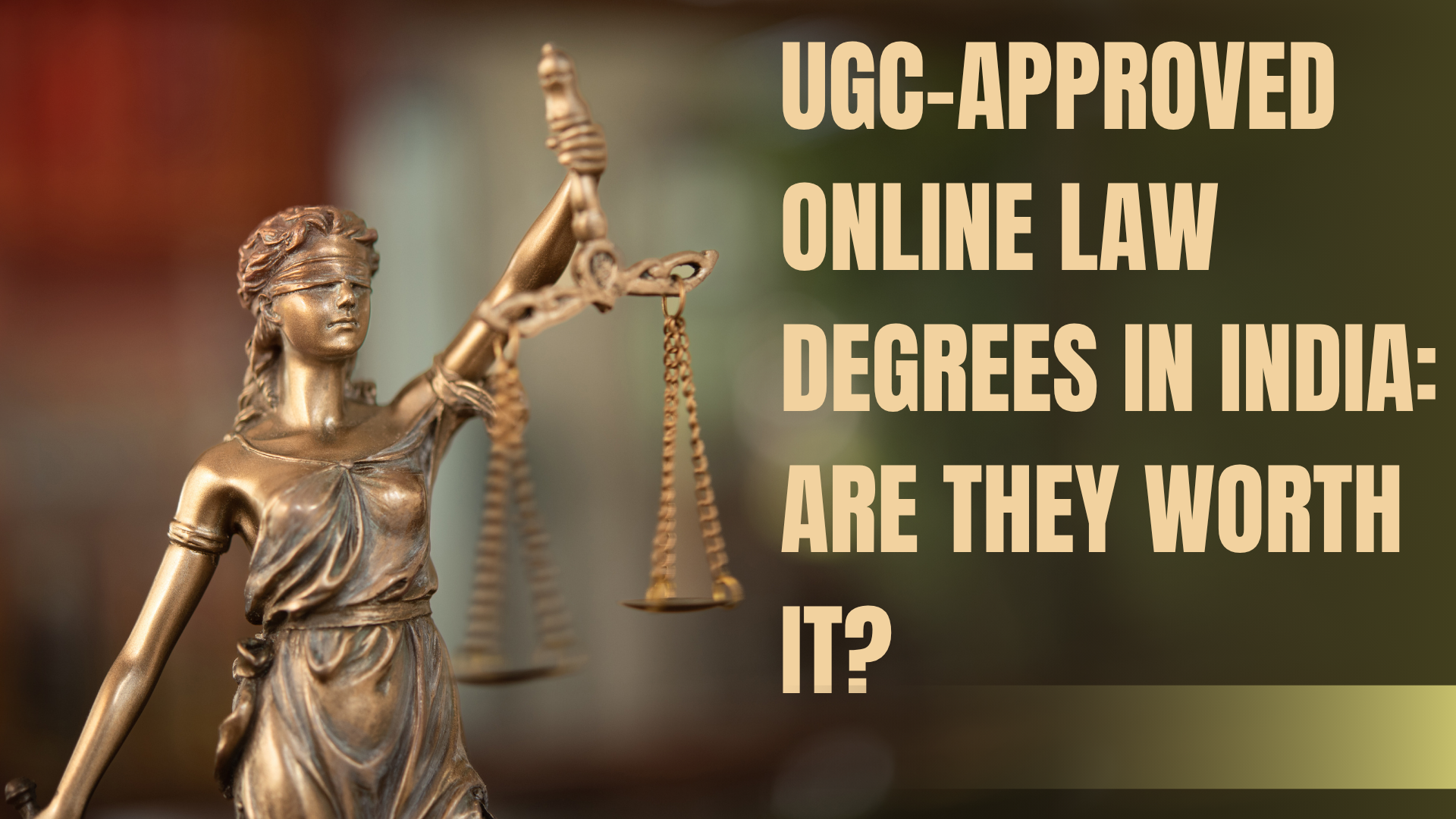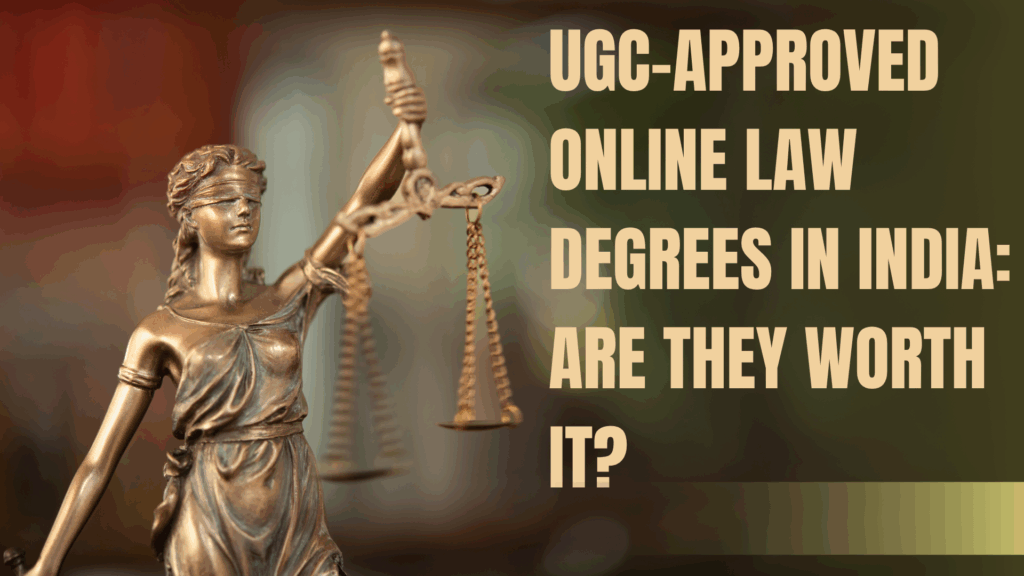In this article, we are going to explore whether UGC-Approved Online Law Degrees in India worth it; read and know the essential specifics regarding all courses.
UGC-Approved Online Law Degrees in India
Online education has risen quickly in India in the last several years, especially in the discipline of law. The University Grants Commission (UGC) has approved online degree programs; thus, many Indian colleges now offer online legal degrees for students and professionals who want to learn in a way that works for them. But the issue is: are these online legal degrees in India that are certified by the UGC worth it?
This essay looks at the structure, trustworthiness, pros and cons of online law degrees in India, especially in 2025, and if they are really useful in the legal field.
What Are UGC-Approved Online Law Degrees?
The University Grants Commission (UGC), India’s legal agency in charge of keeping standards in higher education, has allowed several universities to offer online degree programs from 2020. These rules make sure that only colleges with NAAC ratings over 3.26 or NIRF rankings in the top 100 may provide complete online degrees.

The Bar Council of India (BCI) has not yet made it possible for students to get Bachelor of Laws (LLB) degrees online. However, colleges do offer UGC-approved online law-related degrees, such as
- Bachelor of Arts in Legal Studies
- LL.M. (Master of Laws)
- Postgraduate Diplomas in Law
- Cyber Law, IPR, and Environmental Law Certificate Courses
But it’s crucial to make clear that the Bar Council of India (BCI) does not currently accept online LLB degrees for anyone who wants to practice law in Indian courts. This implies that you can get law-related degrees online, such as an LL.M, a B.A. in Legal Studies, a Postgraduate Diploma, or a certificate program. However, you cannot become an advocate by only taking classes online.
More Information: Get Here
UGC-Approved Online Law Degrees: Summary Table
| Program Type | Duration | Eligibility | Recognized by UGC | Career Options |
|---|---|---|---|---|
| Online LL.M | 1 – 2 years | LLB or equivalent | Yes | Legal Advisor, Consultant, Academia |
| PG Diploma in Law | 6 – 12 months | Graduation | Yes | Legal Support, Compliance, HR |
| B.A. in Legal Studies | 3 years | 10+2 | Yes | Paralegal, Policy Analyst |
| Certificate Courses | 3 – 6 months | Open to all | Yes | Legal Assistant, Entry-level roles |
Benefits of UGC-Approved Online Law Degrees
1. Flexibility and Accessibility
Students may learn from anywhere, which is great for people who work or can’t go to a regular institution. Digital platforms are used to send out study materials, lectures, and tests.
2. Recognized Credentials
Because the UGC has authorized the degrees, they are legal in India. These certifications are accepted by employers in industries including compliance, corporate governance, legal research, and academia.
3. Learning that doesn’t cost too much
Most of the time, online legal degrees cost less than traditional ones. Students save money on moving, living in a hostel, and getting to and from school.
4. Improving skills
Cyber Law, Intellectual Property Rights (IPR), and Environmental Law are examples of specialized online courses that can help you build specialist skills that are very useful in the current employment market for lawyers.
Limitations to Consider
1. Recognition by the Bar Council of India (BCI)
The BCI does not accept online LLB programs for bar admission as of 2025. That means that those who get their law degrees online can’t work in Indian courts unless they also hold a regular LLB degree.
2. Lack of Practical Training
Traditional legal education includes important parts like moot court instruction, internships, and in-person mentorship that online schools may not provide enough of.
3. Perception in Traditional Law Firms
Some traditional legal firms or litigators may not like UGC-approved online degrees as much as traditional law degrees, even if corporate companies may accept them.
Are They Worth It?
Yes, but only if you don’t want to practice law in court.
UGC-approved online law degrees are a good and valid choice if you want to work in legal research, policy-making, in-house legal departments, legal journalism, or academia. They let students learn about the law without having to go to class full-time.
But an online legal degree won’t be enough if you want to be a litigator or advocate. For that, a full-time, BCI-approved LLB program is still the sole route to becoming a lawyer in Indian courts.
Final Thoughts
Online law degrees in India that are authorized by the UGC are a step forward in making legal education more open and adaptable. They don’t presently qualify graduates to practice law in court, but they are very useful for professionals who want to learn more about the law or move into non-litigation legal employment.
These programs are definitely worth it for the proper people, such as working professionals and those who are interested in corporate law, compliance, or scholarly research.
Thanks a lot for reading this content with our portal.








